Science a guiding star for South Pacific Region
Friday, 04 November 2011 09:15
administrator
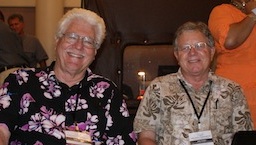 For twenty-six years scientists from around the world have provided advice and support to countries and territories in the South Pacific Region through STAR, the Science, Technology and Resources Network. For twenty-six years scientists from around the world have provided advice and support to countries and territories in the South Pacific Region through STAR, the Science, Technology and Resources Network.
The most recent meeting, an integral part of the SPC/SOPAC Division meeting, took place in Nadi last week (16th – 21st October).
STAR Chair Dr John Collen, Associate Professor, School of Geography, Environmental and Earth Sciences, Victoria University, Wellington NZ, said that STAR was founded in 1983 in collaboration with the International Oceanographic Commission, so that the international scientific community could provide advice to SOPAC.
Last Updated on Friday, 04 November 2011 09:26
Read more...
|
SOPAC Quarterly News April - September 2011
Tuesday, 01 November 2011 15:28
administrator
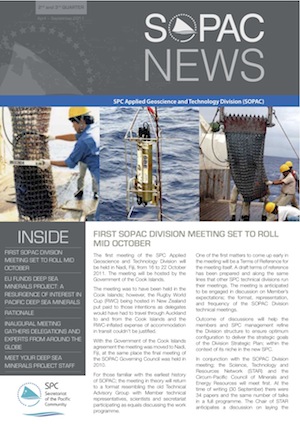 Inside this issue Inside this issue
First Sopac Division Meeting Set to Roll Mid October.
EU Funds Deep Sea Minerals Project: a Resurgence of Interest in Pacific Deep Sea Minerals.
Inaugural Meeting Gathers Delegations and Experts from Around the Globe.
Meet Your Deep Sea Minerals Project Staff.
Download Full Issue | Read Online
Last Updated on Tuesday, 01 November 2011 15:37
New Video Profiles The Division
Wednesday, 26 October 2011 08:37
administrator
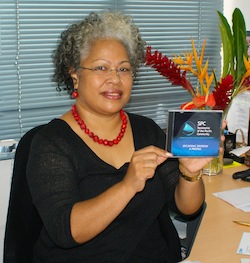 “Our intention is to provide a clear picture of the work that SOPAC continues to do in the region to build the resilience of Pacific people through better understanding of the risks faced, especially to natural hazards ” said Dr. Russell Howorth, Director of the SOPAC Division of SPC. “Our intention is to provide a clear picture of the work that SOPAC continues to do in the region to build the resilience of Pacific people through better understanding of the risks faced, especially to natural hazards ” said Dr. Russell Howorth, Director of the SOPAC Division of SPC.
Dr. Howorth was speaking at the SPC/SOPAC Division Meeting held recently in Nadi where an 18-minute video profile of the SOPAC Division of the SPC was shown for the first time to the more than 60 participants, including 22 member country representatives. Copies were distributed to those attending.
Last Updated on Monday, 31 October 2011 07:14
Read more...
Seabed Minerals Takes On Greater Importance
Friday, 21 October 2011 09:51
administrator
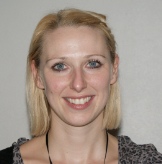 The importance of deep seabed minerals as a new major economic resource to island states in the Pacific has been reinforced with the appointment of Ms. Hannah Lily - Legal Advisor Deep Sea Minerals Project. The importance of deep seabed minerals as a new major economic resource to island states in the Pacific has been reinforced with the appointment of Ms. Hannah Lily - Legal Advisor Deep Sea Minerals Project.
Ms. Lily is the first lawyer to be employed by the SOPAC Division of SPC (Secretariat of the Pacific Community). Ms. Lily was speaking during the First SPC/SOPAC Division Meeting held in Nadi from October 19 - 22.
Ms. Lily said that the purpose of the project is to support 15 participating member countries in developing a legal framework to allow for deep-sea mineral exploration and mining.
Last Updated on Friday, 21 October 2011 10:01
Read more...
Speech at the International Day for Disaster Reduction Exhibition
Friday, 14 October 2011 09:53
administrator
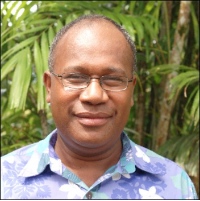 by Mr Amena Yauvoli by Mr Amena Yauvoli
Manager, Secretariat of the Pacific North Pacific Regional Office
October 13th 2011
Traditional Leaders of Pohnpei State
Governor of Pohnpei State Government- Honourable John Ehser
Assistant Secretary, FSM Department of Foreign Affairs- Mr. Ricky Cantero
Director FSM-OEEM- Mr. Andrew Yatilman
Members of the Diplomatic Corp
Invited Guests
Boys and Girls
Kaselehlie Maingko and a very good day to you all.
I am happy to stand before you this morning representing the SPC Director General in this year’s International Day and Disaster Reduction exhibition in Pohnpei, FSM. May I commend the organisers, my colleagues and members of the Disaster Risk Management Network, for putting together a program as such, to help us realise that Disaster Does Happens and we – all of us - have a major role to play in ensuring the safety of our people, friends and loves ones.
Last Updated on Friday, 21 October 2011 10:02
Read more...
|
Education key to preventing death by drowning
Monday, 31 October 2011 07:09
administrator
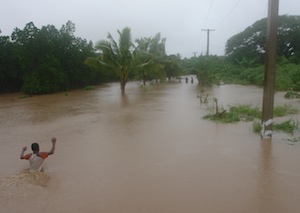 Every year people in Fiji drown in floods. Most of these fatalities occur as a result of people making poor choices and entering the floodwater. Every year people in Fiji drown in floods. Most of these fatalities occur as a result of people making poor choices and entering the floodwater.
Speaking at last week’s SPC/SOPAC Division’s STAR meeting (17th-18th October) in Nadi, Dr Stephen Yeo, a flood risk management consultant from Australia said, “A disproportionately high number of those who have lost their lives in floods in Fiji are males, especially teenagers and young men aged 15 to 24 years, the median age being 23 years.”
Last Updated on Tuesday, 01 November 2011 15:36
Read more...
Cooperative tsunami-warning systems for Vanuatu and New Caledonia
Tuesday, 25 October 2011 07:58
administrator
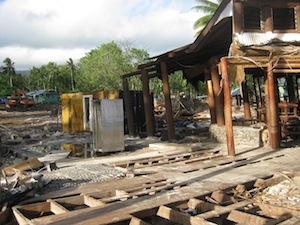 Although thirty percent of the world’s earthquakes occur within the southwest Pacific and eighty-one percent of tsunamis in the region are generated by earthquake activity, the region experiences, on average, some of the slowest detection times for earthquake activity. Although thirty percent of the world’s earthquakes occur within the southwest Pacific and eighty-one percent of tsunamis in the region are generated by earthquake activity, the region experiences, on average, some of the slowest detection times for earthquake activity.
At the SPC/SOPAC Division’s STAR meeting held in Nadi this week, Mrs Esline Garaebiti Bule, Vanuatu Meteorology and Geohazards Department (VMGD) said that the earthquake and tsunami events with casualties in Papua New Guinea, 1998, Vanuatu in 1999, Solomon Islands, 2007, and more recently, Tonga and Samoa in 2009 indicated the region needs a tsunami early-warning system based on fast earthquake detection system for the South West Pacific Region.
Last Updated on Tuesday, 25 October 2011 08:06
Read more...
SOPAC Starts Six Day Meeting in Nadi
Thursday, 20 October 2011 09:21
administrator
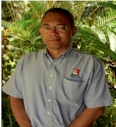 Scientists from around the Pacific have joined 22 member countries and territories of the SOPAC Division of the Secretariat of the South Pacific (SPC) in a six-day meeting being held in Nadi from October 17-22. Scientists from around the Pacific have joined 22 member countries and territories of the SOPAC Division of the Secretariat of the South Pacific (SPC) in a six-day meeting being held in Nadi from October 17-22.
This is SOPAC’s first meeting as a Division since it became a part of SPC in January of this year.
“This is an opportunity to review the progress and directions of the SOPAC Division Work Programme, and to stimulate and plan new, emerging initiatives needed in the region,” said Dr. Russell Howorth, SOPAC’s Director.
Last Updated on Friday, 21 October 2011 10:02
Read more...
Clean Hands Saves Lifes
Monday, 10 October 2011 11:28
administrator

The Global Handwashing Day is being celebrated around the globe on October 15. Simply washing hands with soap breaks the transmission route of infectious diseases, which is crucial in saving lives. Washing hands with soap at critical times can reduce diarrhoeal incidence by 47%. Diarrhoea occupies a leading position among diseases as a cause of death and illness, especially in children.
In the Pacific region, around 3000 children under the age of 5 years die from diarrhoea annually. Globally, hand washing could save around 1 million lives, more than any single vaccine or medical intervention.
Hand washing with soap at critical times is a simple and cost-effective measure to improve health and will significantly reduce the two leading causes of childhood mortality worldwide – diarrhoeal disease and acute respiratory infection.
Last Updated on Monday, 10 October 2011 11:35
Read more...
|
|
|
|
|
|
Page 32 of 49 |
 For twenty-six years scientists from around the world have provided advice and support to countries and territories in the South Pacific Region through STAR, the Science, Technology and Resources Network.
For twenty-six years scientists from around the world have provided advice and support to countries and territories in the South Pacific Region through STAR, the Science, Technology and Resources Network.


 Inside this issue
Inside this issue “Our intention is to provide a clear picture of the work that SOPAC continues to do in the region to build the resilience of Pacific people through better understanding of the risks faced, especially to natural hazards ” said Dr. Russell Howorth, Director of the SOPAC Division of SPC.
“Our intention is to provide a clear picture of the work that SOPAC continues to do in the region to build the resilience of Pacific people through better understanding of the risks faced, especially to natural hazards ” said Dr. Russell Howorth, Director of the SOPAC Division of SPC. The importance of deep seabed minerals as a new major economic resource to island states in the Pacific has been reinforced with the appointment of Ms. Hannah Lily - Legal Advisor Deep Sea Minerals Project.
The importance of deep seabed minerals as a new major economic resource to island states in the Pacific has been reinforced with the appointment of Ms. Hannah Lily - Legal Advisor Deep Sea Minerals Project. by Mr Amena Yauvoli
by Mr Amena Yauvoli Every year people in Fiji drown in floods. Most of these fatalities occur as a result of people making poor choices and entering the floodwater.
Every year people in Fiji drown in floods. Most of these fatalities occur as a result of people making poor choices and entering the floodwater. Although thirty percent of the world’s earthquakes occur within the southwest Pacific and eighty-one percent of tsunamis in the region are generated by earthquake activity, the region experiences, on average, some of the slowest detection times for earthquake activity.
Although thirty percent of the world’s earthquakes occur within the southwest Pacific and eighty-one percent of tsunamis in the region are generated by earthquake activity, the region experiences, on average, some of the slowest detection times for earthquake activity. Scientists from around the Pacific have joined 22 member countries and territories of the SOPAC Division of the Secretariat of the South Pacific (SPC) in a six-day meeting being held in Nadi from October 17-22.
Scientists from around the Pacific have joined 22 member countries and territories of the SOPAC Division of the Secretariat of the South Pacific (SPC) in a six-day meeting being held in Nadi from October 17-22.









